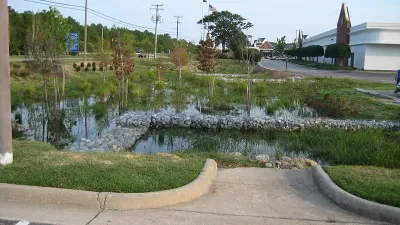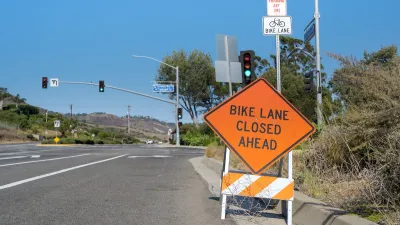How China embarked on an ambitious national plan to capture stormwater.

Writing in WIRED, Matt Simon warns, “Your city was built for a climate of 100, 200, 300 years ago, but that climate no longer exists.”
To that end, cities are finding new (and old) ways to manage and capture stormwater. “The hot new strategy in urban design, which was pioneered in China, is to slow everything down. Since 2013, China has embarked on a national policy to turn its growing metropolises into sponge cities, which capture stormwater instead of disposing of it all.”
WIRED interviewed Kongjian Yu, champion of the concept and founder of the Beijing design firm Turenscape, who says “A sponge city can be on any scale.”
According to Yu, “You have to solve the problem holistically, and the sponge city is a nature-based, holistic solution. It is inexpensive, and it can be done at a small or large scale. You can have your garden, but you also have to plan from the top. It is a sponge planet, it is a sponge countryside, it is a sponge urban district.”
For cities looking to build more resilient green infrastructure, Yu says “ if you come to the green alternative, you will not only save money, but the impact will be more immediate. The sponge city is basically using free nature.”
FULL STORY: The Designer Who’s Trying to Transform Your City Into a Sponge

Americans May Be Stuck — But Why?
Americans are moving a lot less than they once did, and that is a problem. While Yoni Applebaum, in his highly-publicized article Stuck, gets the reasons badly wrong, it's still important to ask: why are we moving so much less than before?

Using Old Oil and Gas Wells for Green Energy Storage
Penn State researchers have found that repurposing abandoned oil and gas wells for geothermal-assisted compressed-air energy storage can boost efficiency, reduce environmental risks, and support clean energy and job transitions.

Placekeeping: Setting a New Precedent for City Planners
How a preservation-based approach to redevelopment and urban design can prevent displacement and honor legacy communities.

San Francisco’s Muni Ridership Grew in 2024
The system saw its highest ridership since before the Covid-19 pandemic, but faces a severe budget shortage in the coming year.

Colorado Lawmakers Move to Protect BRT Funding
In the face of potential federal funding cuts, CDOT leaders reasserted their commitment to planned bus rapid transit projects.

Safe Streets Funding in Jeopardy
The Trump administration is specifically targeting bike infrastructure and other road safety projects in its funding cuts.
Urban Design for Planners 1: Software Tools
This six-course series explores essential urban design concepts using open source software and equips planners with the tools they need to participate fully in the urban design process.
Planning for Universal Design
Learn the tools for implementing Universal Design in planning regulations.
Heyer Gruel & Associates PA
City of Moreno Valley
Institute for Housing and Urban Development Studies (IHS)
City of Grandview
Harvard GSD Executive Education
Salt Lake City
NYU Wagner Graduate School of Public Service
City of Cambridge, Maryland





























